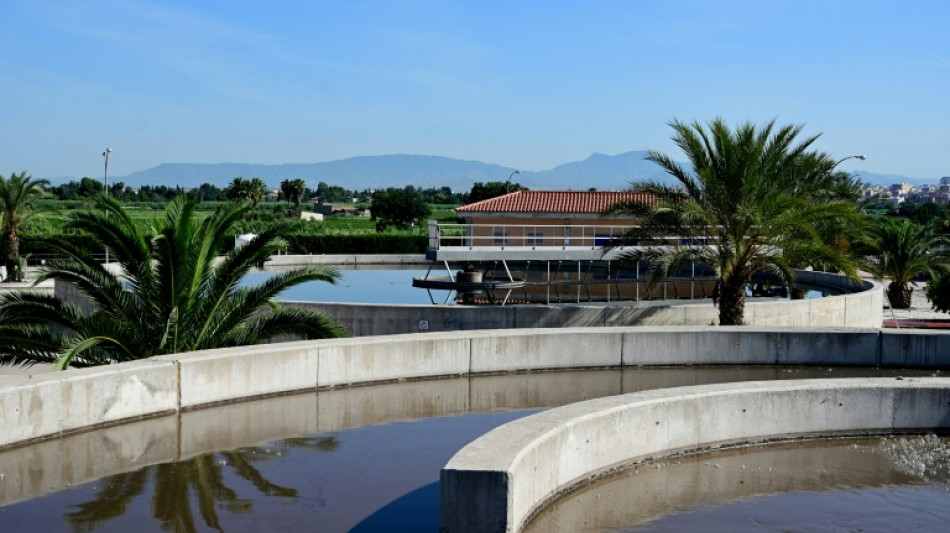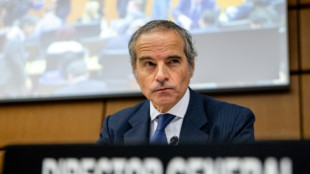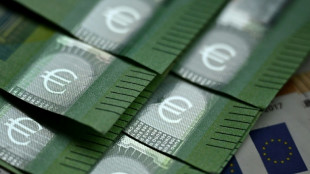
-
 Ko, Woad share lead at LPGA season opener
Ko, Woad share lead at LPGA season opener
-
US Senate votes on funding deal - but shutdown still imminent

-
 US charges prominent journalist after Minneapolis protest coverage
US charges prominent journalist after Minneapolis protest coverage
-
Trump expects Iran to seek deal to avoid US strikes

-
 Guterres warns UN risks 'imminent financial collapse'
Guterres warns UN risks 'imminent financial collapse'
-
NASA delays Moon mission over frigid weather

-
 First competitors settle into Milan's Olympic village
First competitors settle into Milan's Olympic village
-
Fela Kuti: first African to get Grammys Lifetime Achievement Award

-
 'Schitt's Creek' star Catherine O'Hara dead at 71
'Schitt's Creek' star Catherine O'Hara dead at 71
-
Curran hat-trick seals 11 run DLS win for England over Sri Lanka

-
 Cubans queue for fuel as Trump issues energy ultimatum
Cubans queue for fuel as Trump issues energy ultimatum
-
France rescues over 6,000 UK-bound Channel migrants in 2025

-
 Surprise appointment Riera named Frankfurt coach
Surprise appointment Riera named Frankfurt coach
-
Maersk to take over Panama Canal port operations from HK firm

-
 US arrests prominent journalist after Minneapolis protest coverage
US arrests prominent journalist after Minneapolis protest coverage
-
Analysts say Kevin Warsh a safe choice for US Fed chair

-
 Trump predicts Iran will seek deal to avoid US strikes
Trump predicts Iran will seek deal to avoid US strikes
-
US oil giants say it's early days on potential Venezuela boom

-
 Fela Kuti to be first African to get Grammys Lifetime Achievement Award
Fela Kuti to be first African to get Grammys Lifetime Achievement Award
-
Trump says Iran wants deal, US 'armada' larger than in Venezuela raid

-
 US Justice Dept releases new batch of documents, images, videos from Epstein files
US Justice Dept releases new batch of documents, images, videos from Epstein files
-
Four memorable showdowns between Alcaraz and Djokovic

-
 Russian figure skating prodigy Valieva set for comeback -- but not at Olympics
Russian figure skating prodigy Valieva set for comeback -- but not at Olympics
-
Barcelona midfielder Lopez agrees contract extension

-
 Djokovic says 'keep writing me off' after beating Sinner in late-nighter
Djokovic says 'keep writing me off' after beating Sinner in late-nighter
-
US Justice Dept releasing new batch of Epstein files

-
 South Africa and Israel expel envoys in deepening feud
South Africa and Israel expel envoys in deepening feud
-
French eyewear maker in spotlight after presidential showing

-
 Olympic dream 'not over', Vonn says after crash
Olympic dream 'not over', Vonn says after crash
-
Brazil's Lula discharged after cataract surgery

-
 US Senate races to limit shutdown fallout as Trump-backed deal stalls
US Senate races to limit shutdown fallout as Trump-backed deal stalls
-
'He probably would've survived': Iran targeting hospitals in crackdown

-
 Djokovic stuns Sinner to set up Australian Open final with Alcaraz
Djokovic stuns Sinner to set up Australian Open final with Alcaraz
-
Mateta omitted from Palace squad to face Forest

-
 Djokovic 'pushed to the limit' in stunning late-night Sinner upset
Djokovic 'pushed to the limit' in stunning late-night Sinner upset
-
Tunisia's famed blue-and-white village threatened after record rains

-
 Top EU official voices 'shock' at Minneapolis violence
Top EU official voices 'shock' at Minneapolis violence
-
Kremlin says agreed to halt strikes on Kyiv until Sunday

-
 Carrick calls for calm after flying start to Man Utd reign
Carrick calls for calm after flying start to Man Utd reign
-
Djokovic to meet Alcaraz in Melbourne final after five-set marathon

-
 Italian officials to testify in trial over deadly migrant shipwreck
Italian officials to testify in trial over deadly migrant shipwreck
-
Iran says defence capabilities 'never' up for negotiation

-
 UN appeals for more support for flood-hit Mozambicans
UN appeals for more support for flood-hit Mozambicans
-
Lijnders urges Man City to pile pressure on Arsenal in title race

-
 Fulham sign Man City winger Oscar Bobb
Fulham sign Man City winger Oscar Bobb
-
Strasbourg's Argentine striker Panichelli sets sights on PSG, World Cup

-
 Jesus 'made love': Colombian president irks Christians with steamy claim
Jesus 'made love': Colombian president irks Christians with steamy claim
-
IAEA board meets over Ukraine nuclear safety concerns

-
 Eurozone growth beats 2025 forecasts despite Trump woes
Eurozone growth beats 2025 forecasts despite Trump woes
-
Dutch PM-elect Jetten says not yet time to talk to Putin


EU to make pharmaceutical and cosmetic industries pay for treating water
The European Union's parliament Wednesday approved a package of rules that will make the pharmaceutical and cosmetic industries cover more of the costs of cleaning up their waste waters.
With a vote of 481 in favour and 79 against, with 26 abstentions, Europe's parliament rubber-stamped an accord it reached late January with member states.
The text, which revises rules in place since 1991, drastically lowers to 1,000 inhabitants the threshold at which towns will be required by 2035 to eliminate all biodegradable organic materials before they can release their treated used waters into the environment.
Towns with more than 150,000 inhabitants will by 2039 have to remove all nitrogen and phosphorous, and by 2045 a wide range of micropollutants.
Most importantly, the package establishes the principle of "the polluter pays" by imposing greater contributions from the pharmaceutical and cosmetic industries.
According to the EU, 59 percent of micropollutants in water treatment stations come from pharmaceutical producers and 14 percent from cosmetics.
These two sectors will be asked to cover 80 percent of the extra investments needed to eliminate micropollutants, with the remaining 20 percent covered by member states.
The European Commission initially wanted industry to cover the full cost, but it dialled back its demands under pressure from the parliament and industry lobbyists.
The package must still be officially approved by the EU's member states.
F.Mueller--VB




